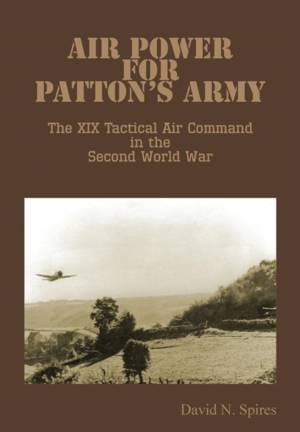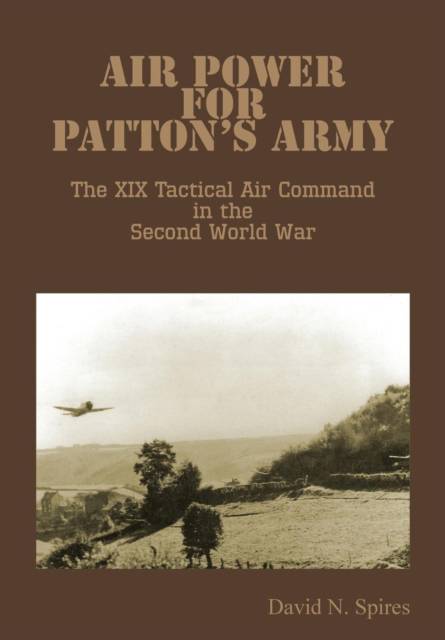
Door een staking bij bpost kan je online bestelling op dit moment iets langer onderweg zijn dan voorzien. Dringend iets nodig? Onze winkels ontvangen jou met open armen!
- Afhalen na 1 uur in een winkel met voorraad
- Gratis thuislevering in België vanaf € 30
- Ruim aanbod met 7 miljoen producten
Door een staking bij bpost kan je online bestelling op dit moment iets langer onderweg zijn dan voorzien. Dringend iets nodig? Onze winkels ontvangen jou met open armen!
- Afhalen na 1 uur in een winkel met voorraad
- Gratis thuislevering in België vanaf € 30
- Ruim aanbod met 7 miljoen producten
Zoeken
Air Power for Patton's Army - The XIX Tactical Air Command in the Second World War
David N Spires, Air Force History & Museums Program
Paperback | Engels
€ 43,45
+ 86 punten
Uitvoering
Omschrijving
First published in 2002. From the foreword: "This insightful work by David N. Spires holds many lessons in tactical air-ground operations. Despite peacetime rivalries in the drafting of service doctrine, in World War II the immense pressures of wartime drove army and air commanders to cooperate in the effective prosecution of battlefield operations. In northwest Europe during the war, the combination of the U.S. Third Army commanded by Lt. Gen. George S. Patton and the XIX Tactical Air Command led by Brig. Gen. Otto P. Weyland proved to be the most effective allied air-ground team of World War II. The great success of Patton's drive across France, ultimately crossing the Rhine, and then racing across southern Germany, owed a great deal to Weyland's airmen of the XIX Tactical Air Command. This deft cooperation paved the way for allied victory in Western Europe and today remains a classic example of air-ground effectiveness. It forever highlighted the importance of air-ground commanders working closely together on the battlefield. The Air Force is indebted to David N. Spires for chronicling this landmark story of air-ground cooperation."
Specificaties
Betrokkenen
- Auteur(s):
- Uitgeverij:
Inhoud
- Aantal bladzijden:
- 392
- Taal:
- Engels
Eigenschappen
- Productcode (EAN):
- 9781782666004
- Verschijningsdatum:
- 10/01/2014
- Uitvoering:
- Paperback
- Formaat:
- Trade paperback (VS)
- Afmetingen:
- 170 mm x 244 mm
- Gewicht:
- 621 g

Alleen bij Standaard Boekhandel
+ 86 punten op je klantenkaart van Standaard Boekhandel
Beoordelingen
We publiceren alleen reviews die voldoen aan de voorwaarden voor reviews. Bekijk onze voorwaarden voor reviews.











